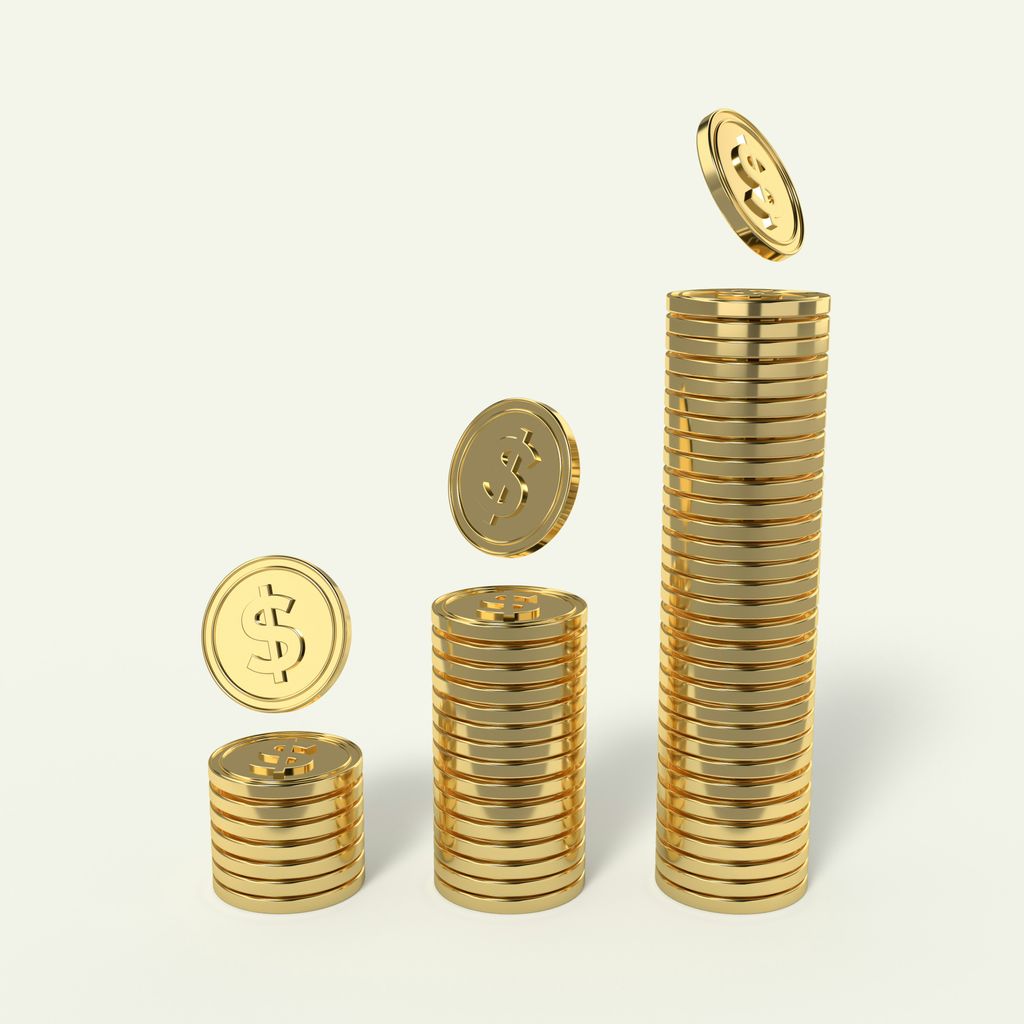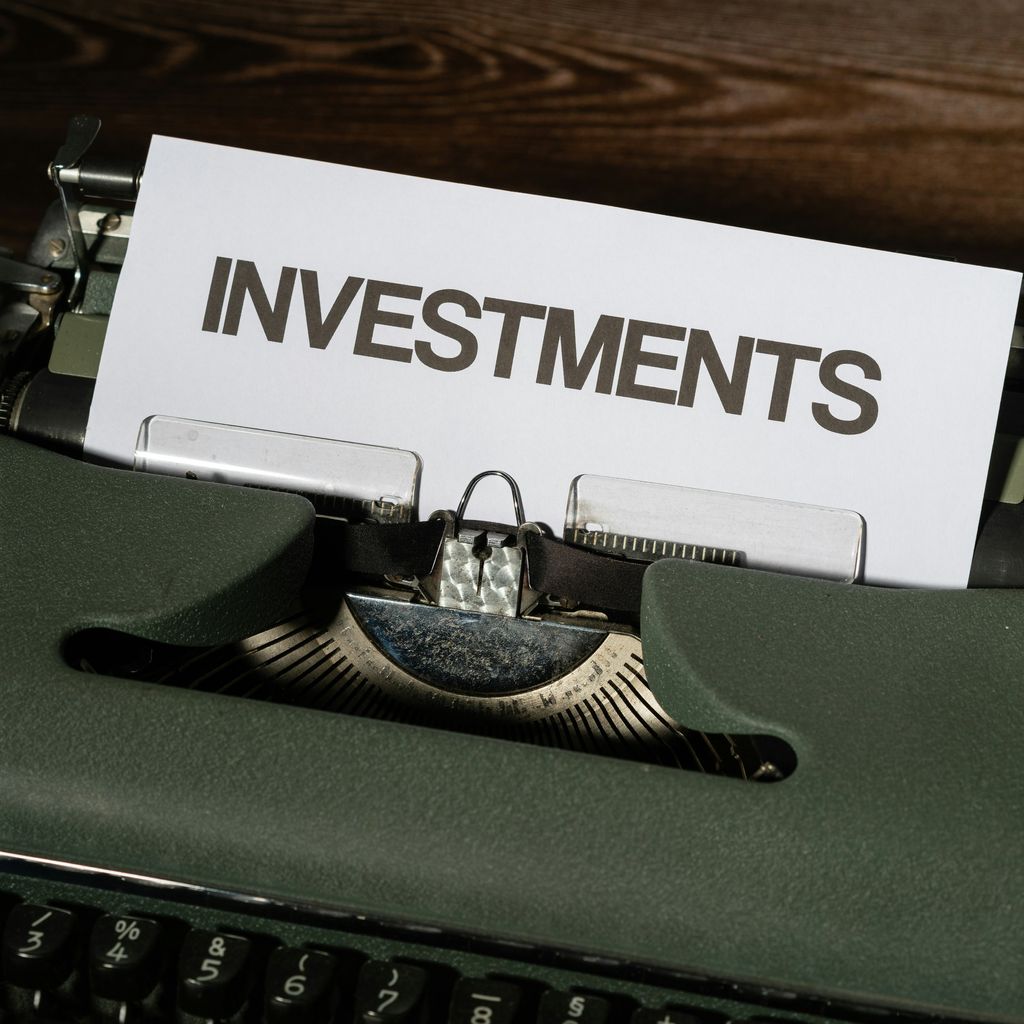Key Takeaways
- High-yield savings accounts and CDs are good for keeping your money safe and accessible.
- Bonds and corporate bonds can offer steady income with different levels of risk.
- Funds and stock index funds let you invest in many companies at once, spreading out risk.
- Individual stocks can offer high returns but come with more risk.
- Alternative investments and private markets might give you different ways to grow your money, but they often require more research.
1. High-Yield Savings Accounts

Okay, so a savings account isn't technically an investment, but with rates still pretty high, they've earned a spot on this list for 2025. Especially if you've got short-term goals. I mean, who doesn't want to earn a decent return on money they might need soon?
A high-yield savings account is basically an account that pays you interest on your cash balance. Think of it like a regular savings account, but with a much better interest rate. These accounts are great if you need to get to your money quickly.
High-yield savings accounts are really good for short-term savings or money you might need for emergencies or, say, that dream vacation you're planning. It's a safe place to keep your cash while still earning something on it.
Now, where do you find these magical accounts? Usually, online banks are the way to go. They often offer higher rates than your traditional brick-and-mortar banks. Plus, many of them are FDIC-insured, so your money is safe, up to a certain limit, of course. Just make sure you stay within those limits.
Here's a quick rundown:
- Great for short-term savings.
- Easy access to your funds.
- Generally FDIC-insured.
But, like anything, there are a few things to keep in mind. While your money is safe, there's always the risk of inflation. If the interest rate isn't high enough, you could end up losing purchasing power over time. So, it's a good idea to explore the top savings account rates and keep an eye on those rates to make sure you're getting the best deal. For example, you can find options like EverBank with a solid APY and no minimum deposit, or Bread Savings, which also has a competitive rate. Just do your homework!
2. CDs

CDs, or Certificates of Deposit, are a pretty straightforward investment. You basically lend money to a bank for a fixed period, and they pay you interest. It's like a savings account, but your money is locked up for the term.
CDs are best for money you know you won’t need for a specific period. Think of it as a safe place to park cash you're earmarking for something down the road. If you try to pull your money out early, you'll probably get hit with a penalty, so it's not ideal for emergency funds.
Right now, CD rates are looking pretty good, the best in a while. You can find decent rates at online banks and credit unions. Keep in mind that the rates can change, so it's worth shopping around.
Here's a quick rundown:
- Fixed interest rate for the term.
- Penalty for early withdrawal.
- FDIC insured up to $250,000 per depositor, per insured bank.
CDs are a good option if you want a predictable return and don't need immediate access to your funds. They're generally considered low-risk, making them suitable for more conservative investors.
Consider checking out the top CD rate available before making any decisions. It's always good to know what's out there.
3. Bonds
Bonds are often seen as a cornerstone of a balanced investment portfolio. They represent a loan you make to a government or corporation, which they repay with interest over a set period. It's like being the bank, but on a smaller scale.
Government bonds are generally considered very safe, as they're backed by the government. Corporate bonds carry more risk, but they also tend to offer higher yields. You can buy individual bonds, or you can invest in bond funds, which hold a variety of bonds. If you're looking for a relatively safe form of fixed income, bonds might be worth considering.
Bonds can be a good way to diversify your investments and generate income. However, it's important to understand the risks involved before you invest.
Here are a few things to keep in mind about bonds:
- Interest rates can affect bond prices. When interest rates rise, bond prices tend to fall, and vice versa.
- Credit ratings matter. Bonds issued by companies with lower credit ratings are riskier, but they also offer higher yields.
- Inflation can erode the value of your bond investments. Consider inflation-indexed bonds like TIPS to protect your savings.
As of January 1, 2025, remember that I bonds are now exclusively available electronically through TreasuryDirect accounts, earning monthly interest.
4. Funds
Funds are a popular way to invest, especially if you're looking for diversification without the hassle of picking individual stocks or bonds. There are a few different types to consider, each with its own risk and reward profile.
One type is mutual funds. These funds pool money from multiple investors to buy a variety of assets. This can be a convenient way to get exposure to the stock market. Some funds focus on specific sectors, like tech or healthcare, or on companies that pay high dividends. You can purchase mutual funds directly from a fund provider or through a brokerage account.
Another type is money market funds. These are generally considered safer than other types of funds, but they also tend to have lower returns. Think of them as a step up from a high-yield savings account. Investors use money market funds to hold a portion of their portfolio in a safer investment. You can find the best-performing money market funds at most online brokerages.
Funds offer diversification and professional management, but it's important to understand the fees and expenses associated with them. These fees can eat into your returns, so be sure to do your research before investing.
Here's a quick comparison of the two:
Choosing the right fund depends on your individual financial goals and risk tolerance. Consider consulting with a financial advisor to determine which funds are right for you.
Here are some things to keep in mind when choosing a fund:
- Expense Ratio: This is the annual fee charged to manage the fund.
- Investment Strategy: Make sure the fund's strategy aligns with your goals.
- Past Performance: While past performance is not indicative of future results, it can give you an idea of how the fund has performed in different market conditions.
5. Stocks
Okay, let's talk stocks. Investing in stocks means you're buying a piece of a company. It's like saying, "Hey, I believe in what you're doing, and I want to be a part of it." Stocks can potentially give you higher returns compared to safer options like bonds, but they also come with more risk. You know, the whole 'high risk, high reward' thing.
Now, here's the deal: individual stocks can be volatile. One day they're up, the next they're down. It's a rollercoaster. That's why a lot of people suggest not putting all your eggs in one basket. A good rule of thumb is to keep your individual stock holdings to around 10% or less of your entire investment portfolio. This way, if one stock tanks, it doesn't ruin everything.
Think of stocks as a long-term game. You're not trying to get rich overnight (though wouldn't that be nice?). You're looking for companies that will grow over time and give you a solid return on your investment. Do your research, pick companies you believe in, and be patient.
Diversifying your cryptocurrency portfolios is key to managing risk. Speaking of research, let's look at a specific example. Take Nvidia (NVDA), for instance. They're big in the semiconductor world, especially with GPUs and their growing influence in AI. If you believe AI is the future, then investing in a company like Nvidia might make sense. But again, do your homework and understand what you're getting into.
Here's a quick look at how stocks have performed compared to other investments:
As you can see, stocks have generally outperformed gold. But remember, past performance doesn't guarantee future results. Always consider your own risk tolerance and investment goals before making any decisions. Investing in dividend stocks can be a good strategy for generating income.
6. Gold
Gold is often seen as a safe haven investment, especially when the stock market gets a little too wild. It's like everyone suddenly remembers gold exists when things get shaky. Should you run out and buy a bunch of gold bars? Well, maybe not a bunch, but let's talk about why it's interesting.
Gold's price has been doing pretty well, actually. It's up nearly 40% over the last year, hitting record highs. People like gold because, unlike stocks, you can actually see it and touch it. It feels more real, I guess. Plus, it can act as a hedge against inflation and currency devaluation. It's not going to make you rich overnight, but it can help protect your money.
Gold shouldn't make up the bulk of your portfolio. It's more of a diversifier, something to add a bit of stability. Think of it as the sensible shoes in your investment closet.
Now, gold prices are projected to reach an average of $3,675/oz by the fourth quarter of 2025. It's important to remember that gold prices can be volatile, and past performance doesn't guarantee future results.
Here's a quick look at some factors that can influence gold prices:
- Inflation: Gold often rises when inflation increases.
- Interest Rates: Higher interest rates can sometimes decrease gold's appeal.
- Geopolitical Events: Uncertainty can drive investors to gold.
- Central Bank Activity: Central banks' buying and selling can affect prices.
Some people are also looking at Bitcoin and gold as safe-haven assets. Gold has a long history of stability, while Bitcoin is the new kid on the block with more volatility. Combining both could be a way to balance risk and reward in your portfolio.
7. Corporate Bonds

Corporate bonds are essentially loans you make to a company. When you buy a corporate bond, you're lending the company money, and they promise to pay you back with interest over a set period. Unlike government bonds, these aren't backed by the government, so there's a bit more risk involved.
Think of it this way:
- You're the bank, and the company is taking out a loan.
- The interest rate (or yield) reflects the company's creditworthiness.
- The bond's maturity date is when the company needs to repay the loan.
The yield on a corporate bond is usually higher than that of a government bond because you're taking on more risk. Basically, the riskier the company, the higher the yield they need to offer to attract investors. You can analyze corporate bond market trends to understand the risk/return balance.
It's important to remember that corporate bonds aren't all created equal. Some are issued by huge, stable companies, while others come from smaller, more volatile ones. Do your homework before investing.
Where can you buy them? Similar to government bonds, you can invest in corporate bond funds or individual bonds through a brokerage account. Also, keep in mind the evolution of blockchain technology may impact how these bonds are traded in the future.
8. Stock Index Funds
Stock index funds? Yeah, they're pretty popular. Basically, they aim to mirror the performance of a specific market index, like the S&P 500. Instead of trying to beat the market, they just match it. It's a passive investment strategy, which usually means lower fees.
Index funds are a solid choice for long-term investors looking for broad market exposure.
Think of it like this:
- You get instant diversification.
- Fees are generally lower than actively managed funds.
- It's a hands-off approach to investing.
I remember when I first started investing, I was all over the place, trying to pick the next big stock. It was exhausting and, honestly, not very profitable. Switching to index funds simplified everything. Now, I just let the market do its thing.
S&P 500 index funds are based on about five hundred of the largest American companies. You can purchase a REIT fund at any broker that allows you to trade ETFs or mutual funds. The best Nasdaq index funds charge a low expense ratio, and they’re a cheap way to own all the companies in the index.
9. Alternative Investments

Okay, so alternative investments. What are they? Basically, it's anything that's not your typical stocks, bonds, or cash. Think of it as venturing off the beaten path a bit. These investments can act differently than the stock market, which can be a good thing.
Alternative investments can potentially diversify your portfolio and reduce overall risk.
It's worth noting that alternative investments often come with higher fees and can be less liquid than traditional investments. This means it might be harder to sell them quickly if you need the money. Always do your homework and consider talking to a financial advisor before jumping in.
Here are a few examples:
- Hedge funds
- Private equity
- Real estate
- Commodities
These options can provide returns that aren't always tied to the stock market's ups and downs. For example, the U.S. housing market might offer opportunities even if the stock market is volatile. Just remember, with potentially higher returns comes potentially higher risk. Also, keep in mind that blockchain technology investments are also considered alternative investments.
10. Private Markets
Private markets are an interesting area. They're not as easily accessible as public markets, but they can potentially offer higher returns. It's like going off the beaten path – more risk, but maybe a bigger reward.
Private markets include investments in companies that aren't publicly traded on stock exchanges. This can range from venture capital to private equity and real estate. The thing is, these investments are often illiquid, meaning it's not easy to quickly convert them to cash. You're in it for the long haul.
One area to watch is private equity secondaries. These involve buying and selling pre-existing investor commitments to private equity funds. It's like getting a second-hand stake in a private company. The secondary market has really come into its own, offering a way to generate liquidity.
Investing in private markets requires a different mindset. It's about patience, due diligence, and understanding that you might not see returns for several years. It's not for everyone, but for those who can stomach the risk, it can be a worthwhile part of a diversified portfolio.
Another area showing promise is growth equity and venture capital. Capital investment is rising, which supports innovation. In 2025, expect investors to pursue new opportunities to back innovation. Just remember, thorough research is crucial when choosing investment partners.
Here's a quick look at some potential benefits and drawbacks:
- Potential for higher returns
- Diversification from public markets
- Access to unique investment opportunities
- Illiquidity
- Higher risk
- Requires specialized knowledge
## Conclusion: Making Smart Choices for Your Money
So, as we look ahead to 2025, it's clear there are lots of places you can put your money. From super safe options like high-yield savings accounts to things with more risk, like stocks, there's something for everyone. The big thing is to pick investments that make sense for your own goals and how much risk you're okay with. Don't just jump into whatever seems popular. Take some time to think about what you want to achieve and how long you have to get there. That way, you can build a plan that works for you and helps your money grow.
Frequently Asked Questions
How do I pick the right investment for me?
The best investment for you depends on what you want to achieve with your money, how long you plan to invest, and your comfort with risk. For example, if you need your money soon, a high-yield savings account is a good choice. If you're investing for the long haul, like retirement, stocks might be better.
Why is it important to have different kinds of investments?
It's smart to spread your money across different types of investments. This is called diversification. It helps lower your risk because if one investment doesn't do well, others might. You can mix safe options like savings accounts with growth-focused ones like stocks.
What's the connection between risk and how much money I can make?
Higher returns usually come with higher risks. This means there's a chance you could lose some of your money. Safer investments, like high-yield savings accounts, offer lower returns but are very unlikely to lose value.
Should I invest differently for short-term versus long-term goals?
For goals that are far away, like retirement, stocks are often a good choice because they tend to grow a lot over time. For short-term goals, like saving for a down payment on a house next year, safer options like high-yield savings accounts or CDs are better.
What is a high-yield savings account?
A high-yield savings account is like a regular savings account, but it pays you more interest on your money. They are usually offered by online banks and are a safe place to keep cash you might need soon.
Can you explain what a CD is?
CDs, or Certificates of Deposit, are like a savings account where you agree to keep your money for a set amount of time, like six months or a year. In return, the bank pays you a fixed interest rate, which is often higher than a regular savings account.
What are bonds and how do they work?
Bonds are like loans you give to a government or a company. They pay you back with interest over time, and then return your original money at the end. They are generally less risky than stocks.
What is a stock index fund?
Stock index funds are special types of investments that hold a collection of stocks from many different companies. This means you own a small piece of all those companies, which helps spread out your risk.

.png)